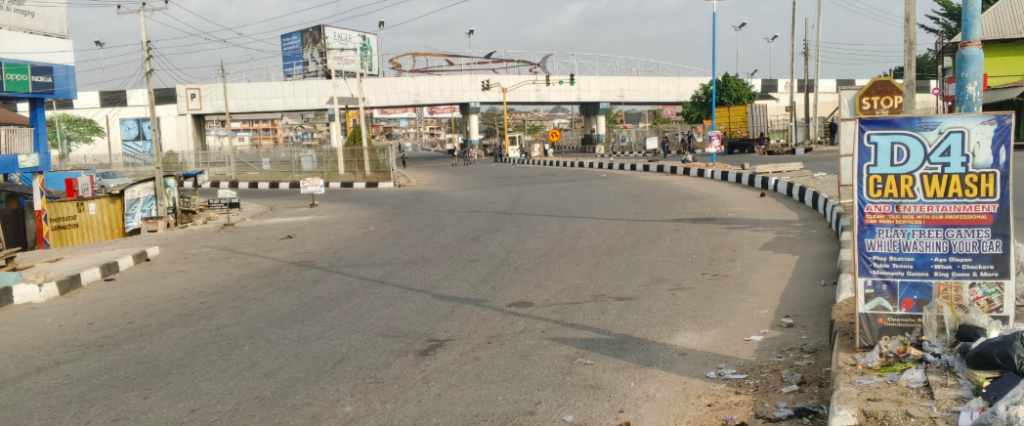The streets of Osogbo, the capital of Osun State, were eerily deserted on a Saturday slated for local government elections. This unusual quietude stemmed from a clash between the state government and the Nigerian Police Force regarding the conduct of the polls. Despite receiving security advice suggesting a postponement, the Osun State Government, led by Governor Ademola Adeleke, insisted on proceeding with the elections, citing adherence to the rule of law and accusing the police of partisan bias towards the All Progressives Congress (APC). The atmosphere was tense, with police operatives deployed at strategic locations, meticulously scrutinizing the few vehicles venturing onto the roads. Commercial activities were paralyzed, with shops, markets, and businesses remaining closed, reflecting the prevailing uncertainty and apprehension surrounding the electoral process.
The heart of the dispute revolved around the legitimacy of the elections and the subsequent security concerns raised by the police. The state government argued that the police advice was tainted by political motivations, alleging that the force was actively supporting the APC’s attempts to disrupt the polls. This contention was fueled by previous incidents where the police allegedly enforced a non-existent court order reinstating APC council officials. The state government perceived this as clear evidence of the police’s partisan leanings and a deliberate attempt to undermine the democratic process. This perception further solidified their resolve to proceed with the elections as scheduled, viewing the police advice as a calculated maneuver to obstruct their efforts.
Adding another layer of complexity to the situation was the timing of the elections. They followed a court judgment that had affirmed vacancies in the local councils, validating the dismissal of the previous APC council officials. This ruling, according to the state government, provided a legal basis for conducting fresh elections and further justified their decision to disregard the police advice. Moreover, the court had directed the police and other security agencies to ensure security for the elections, a directive which, according to the state government, the police were failing to uphold. This apparent defiance of a court order further cemented the government’s conviction that the police were acting with ulterior motives.
The Osun State Commissioner for Information and Public Enlightenment, Kolapo Alimi, articulated the government’s stance in a public statement. He reiterated the government’s rejection of the police advice, labeling it as “biased, partisan, and in contravention of democratic tenets.” He accused the police of actively promoting the APC’s agenda, which the government viewed as an attempt to circumvent the rule of law. Alimi further emphasized the court judgment that had sanctioned the dismissal of the previous APC council officials, effectively creating vacancies in the local councils and paving the way for fresh elections. He pointed out that instead of complying with the court order to provide security for the polls, the police were actively working against the rule of law.
As the day progressed, reports from various polling units within Osogbo indicated a delayed start to the voting process. Electoral officers were yet to arrive at several locations, including Olaiya, Ota Efun, Ayetoro, Igona, and Jaleoyemi areas. This delay, coupled with the deserted streets and closed businesses, created an atmosphere of uncertainty and anticipation. The absence of electoral officers and the overall lack of activity at the polling stations raised questions about the feasibility of conducting the elections as planned. It also underscored the tension between the state government and the police, and the potential for further complications.
The unfolding situation in Osogbo presented a complex scenario involving a clash between the state government and the police force over the conduct of local government elections. The government’s insistence on proceeding with the polls despite security concerns raised by the police, coupled with accusations of police partisanship and defiance of a court order, created a politically charged environment. The deserted streets, closed businesses, and delayed arrival of electoral officers further contributed to the sense of uncertainty surrounding the electoral process. This situation underscored the delicate balance between maintaining law and order, upholding the rule of law, and ensuring a free and fair electoral process in a democratic society. The eventual outcome of the elections and the subsequent actions of both the state government and the police force would undoubtedly have significant implications for the political landscape of Osun State.


